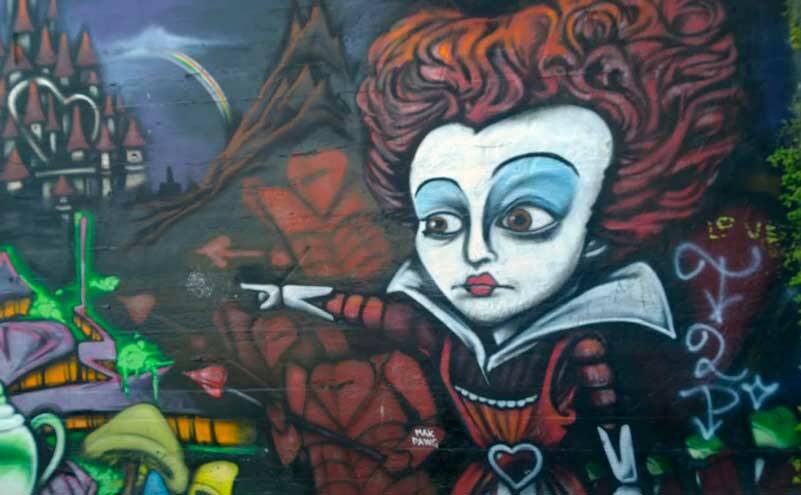By Morf Morford, Tacoma Daily Index
We’ve become so accustomed to them that we barely notice them.
Those gushing tears on the faces of toddlers, or politicians, or domestic abusers, or defendants or even candidates for public office are meant to convince us – and they often do.
Protesting too much
Consider just a few of these scenes and how often we’ve seen them on screens or in real life.
A disgraced politician offers his tearful apologies to the public after he was caught in corrupt activities or cheating on their spouse. They’re not sorry they violated trust, or committed a crime, but are sorry they got caught.
A wealthy person can be shedding public tears for the poor or homeless without doing anything to help them.
An employer sheds crocodile tears when they tell an employee they’re sorry to let them go even though they’re glad to see them finally leaving.
A family member crying crocodile tears when attending the funeral of another family member they never liked.
A widowed man who marries immediately after his wife’s death sheds over-dramatic tears at her funeral.
A schoolyard bully shedding crocodile tears when they are expelled due to their actions.
An alcoholic abuser crying as they say, “I’ll never do it again!”
Or an accused person under oath weeping about his or her innocence.
A bit of crocodile tear history
This not a new term, in fact as an idiom, it dates back to the 14th or 15th century, but some reports claim it dates back all the way to the 13th century. It was believed back then that crocodiles would weep when eating their prey.
In the myth of The Voyage and Travail of Sir John Maundeville created around the 1400s, Sir John Maundeville claimed that crocodiles would slay men and then cry as they were eaten.
Several other historical texts refer to the belief that crocodiles cry when they devour their prey, but it wasn’t until the 16th century’s Life of Grindal when we first see “crocodile tears” used as an idiom sometime before 1563.
That means the term “crocodile tears” developed in English vernacular until it became a popular idiom between the 14th and 16th century.
The Walrus and the Carpenter
The theme was later embraced, and popularized in Through the Looking Glass by Lewis Carroll.
Carroll used a walrus in place of a crocodile, but the message is the same – the walrus uses sympathy to earn the trust of a crowd of young oysters who gather to hear his stories.
The Walrus and the Carpenter were traveling through the beach when they discovered a family of oysters.
Despite the warning of their mother, the Walrus tricks them into coming with them on a walk, the oysters being unaware that they were the main course on that day’s menu.
The Walrus used his clever lies to arouse the oysters’ curiosity and, with a merry Pied Piper-like dance and flute solo (in the Disney animated film version), lures them to a restaurant built by the Carpenter. Once there, the Walrus tricks the Carpenter into preparing some food so he can eat all the oysters himself.
When the Carpenter returns, the Walrus is seen crying after eating the oysters, because he either felt sorry for them or because he had eaten them all so quickly – and selfishly.
But the premise is that it is so sad that the cute little oysters are destined to be eaten.
And the most extreme emotional reaction is, of course, by the one doing the eating.
The tears of a crocodile
The first, seemingly instinctual, characteristic of the crocodile is deception.
The phrase “crocodile’s tears” has come to mean fake tears and over-dramatic reactions to accusations or questioning.
This is the convincing evidence of the deceptive and predatory nature of crocodiles. They feast on their prey while shedding tears, as if the killing of the prey is causing them emotional distress.
The crocodile however, or scheming huckster of any persuasion, is not your friend.
The crocodile is a crafty creature that tricks its prey (and often us) into surrendering ourselves.
The shedding of tears is not related to emotional status in any way as Carroll shows in this scene with the young oysters.
The almost sincere action is aimed at enhancing the physical appearance of the crocodile so that it can attract its prey and deceive the prey into offering itself up for the crocodile’s consumption.
I know people from both extremes of the political spectrum – or even in the middle – who see the media, many business leaders and certainly the majority of politicians as glad-handing hucksters working full-time for their own gain.
When “public servants” live in luxury and safety, immune from laws they themselves pass (and who give themselves raises on a regular basis when they can barely be bothered to ensure a living wage or safe working conditions – or a functional infrastructure for travel or communications for the rest of us), as they wring their hands in anguish over homelessness, pay inequity or economic instability, as their net worth somehow mysteriously grows, you know, whatever your political perspective, that the crocodiles are getting their fill.





